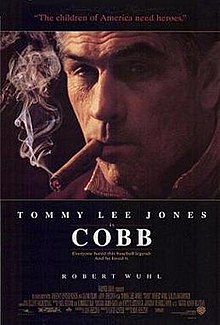 (1980)
(1980)
Directed by Daniel Petrie
Written by Lewis John Carlino
Starring Ellen Burstyn, Eva La Gallienne, Sam Shepard
IMDB Entry
The obscurity of this film is purely due to the deliberate sabotage by its own production company. That's a little surprising, but then, this is Hollywood, and if you'd rather lose money on a film than have it succeed, no one thinks you're nuts.
It garnered a couple of Oscar nominations (for Burstyn and La Gallienne), a Golden Globe nomination (Burstyn) and was among the top films of 1980. Yet now it seems to have been forgotten. If Burstyn had won, things might have been different, but the film deserves to be mentioned with the best of the 80s.
Despite the title, resurrection really isn't the theme of the film. Burstyn plays a woman who "dies" in a car crash, but who is revived after a brief time of being clinically dead (sort of like Buffy). But she comes back with a new ability: her touch can heal the sick.
She returns to her family, who try to understand what's going on. They are religious, but Burstyn refuses to ascribe her ability to God; she doesn't want to give it any supernatural explanation. This causes a great deal of conflict with her family.
Burstyn has explained why the film did so poorly. Universal, who produced, wanted Sissy Spacek to win the Oscar for Coal Miner's Daughter that year. When Burstyn got great reviews, the company pulled the movie from the theaters so she wouldn't compete with Spacek. I don't know how true this is, but it may explain why the film had a weak box office.
The film was written by Lewis John Carlino, who had scored renown a couple of years later with the screenplay to The Great Santini (which he also directed). Carlino practically vanished after this, though, another talent who deserved more of a chance in Hollywood.
And Eva La Gallienne was a major Broadway actor, producer, and director (and translator of Ibsen) who made far too few movies. Her performance as Burstyn's grandmother is a wonder to behold.
What really makes the film is the final scene. It is one of the most beautifully heartwarming scenes in the history of cinema and deserves to be a film icon. Alas, that sort of thing is not popular any more, but it leaves you feeling just plain good.
 (1994)
(1994) (1975)
(1975)